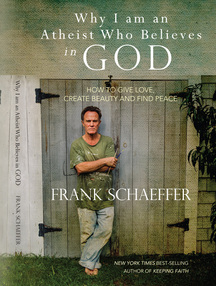“Lisak’s findings upended general presumptions about campus sexual assault: It implied that most incidents are not bumbling, he-said-she-said miscommunications, but rather deliberate crimes by serial sex offenders…”
Here is an excerpt from: A Rape on Campus: A Brutal Assault and Struggle for Justice at UVA Rolling Stone
Frats are often the sole option for an underage drinker looking to party, since bars are off-limits, sororities are dry and first-year students don’t get many invites to apartment soirees. Instead, the kids crowd the walkways of the big, anonymous frat houses, vying for entry. “Hot girls who are drunk always get in – it’s a good idea to act drunker than you really are,” says third-year Alexandria Pinkleton, expertly clad in the UVA-after-dark uniform of a midriff-baring sleeveless top and shorts. “Also? You have to seem very innocent and vulnerable. That’s why they love first-year girls.”
Once successfully inside the frat house, women play the role of grateful guests in unfamiliar territory where men control the variables. In dark, loud basements, girls accept drinks, are pulled onto dance floors to be ground and groped and, later, often having lost sight of their friends, led into bathrooms or up the stairs for privacy. Most of that hooking up is consensual. But against that backdrop, as psychologist David Lisak discovered, lurk undetected predators. Lisak’s 2002 groundbreaking study of more than 1,800 college men found that roughly nine out of 10 rapes are committed by serial offenders, who are responsible for an astonishing average of six rapes each. None of the offenders in Lisak’s study had ever been reported. Lisak’s findings upended general presumptions about campus sexual assault: It implied that most incidents are not bumbling, he-said-she-said miscommunications, but rather deliberate crimes by serial sex offenders.
In his study, Lisak’s subjects described the ways in which they used the camouflage of college as fruitful rape-hunting grounds. They told Lisak they target freshmen for being the most naïve and the least-experienced drinkers. One offender described how his party-hearty friends would help incapacitate his victims: “We always had some kind of punch. . . . We’d make it with a real sweet juice. It was really powerful stuff. The girls wouldn’t know what hit them.” Presumably, the friends mixing the drinks did so without realizing the offender’s plot, just as when they probably high-fived him the next morning, they didn’t realize the behavior they’d just endorsed. That’s because the serial rapist’s behavior can look ordinary at college. “They’re not acting in a vacuum,” observes Lisak of predators. “They’re echoing that message and that culture that’s around them: the objectification and degradation of women.”
One need only glance around at some recent college hijinks to see spectacular examples of the way the abasement of women has broken through to no-holds-barred misogyny: a Dartmouth student’s how-to-rape guide posted online this past January; Yale pledges chanting “No means yes! Yes means anal!” And despite its air of mannered civility, UVA has been in on the naughty fun for at least 70 years with its jolly fight song “Rugby Road,” which celebrates the sexual triumphs of UVA fraternity men, named for the very same street where my guides and I are now enveloped in a thickening crowd of wasted first-years. Through the decades, the song has expanded to 35 verses, with the more recent, student-penned stanzas shedding the song’s winking tone in favor of something more jarringly explicit:
A hundred Delta Gammas, a thousand AZDs
Ten thousand Pi Phi bitches who get down on their knees
But the ones that we hold true, the ones that we hold dear
Are the ones who stay up late at night, and take it in the rear.In 2010, “Rugby Road” was banned from football games – despite a petition calling it “an integral part” of UVA culture. But Wahoos fearing the loss of tradition can take heart that “Rugby Road” verses are still performed on campus by UVA’s oldest a cappella group, the Virginia Gentlemen.
Frank Schaeffer is a writer. His latest book —WHY I AM AN ATHEIST WHO BELIEVES IN GOD: How to give love, create beauty and find peace













